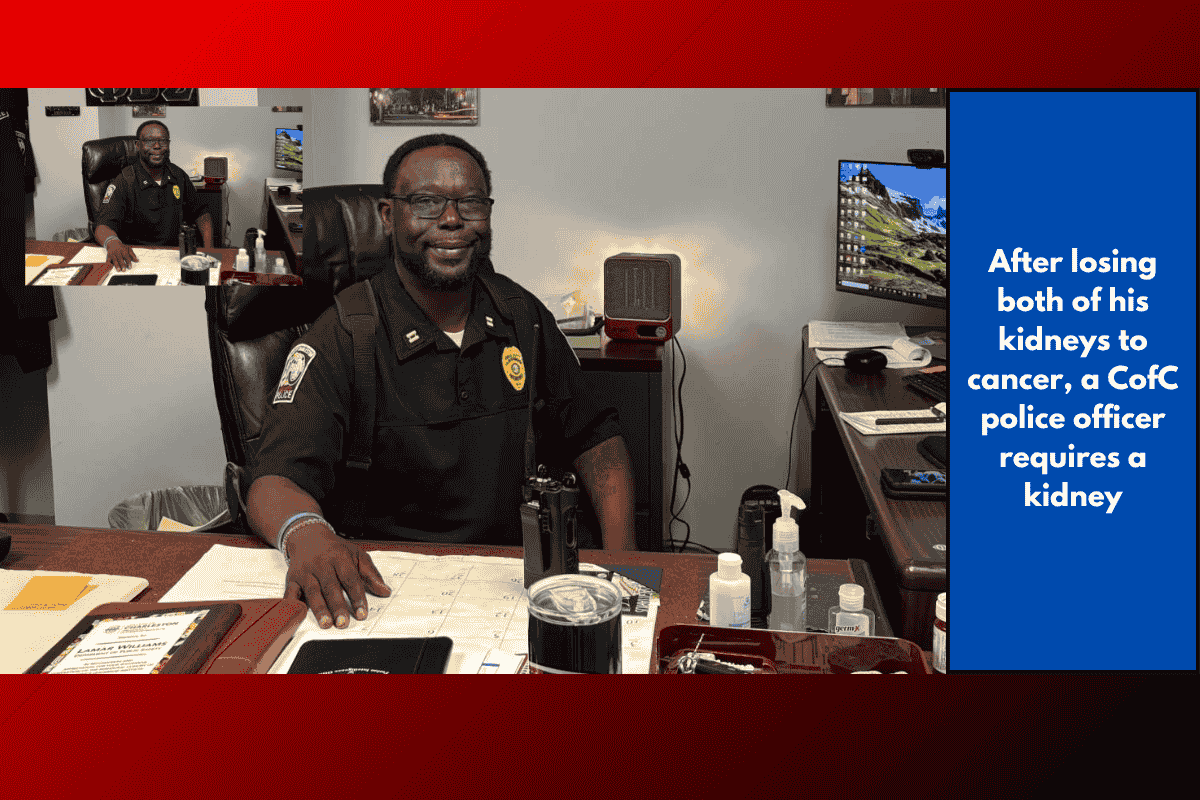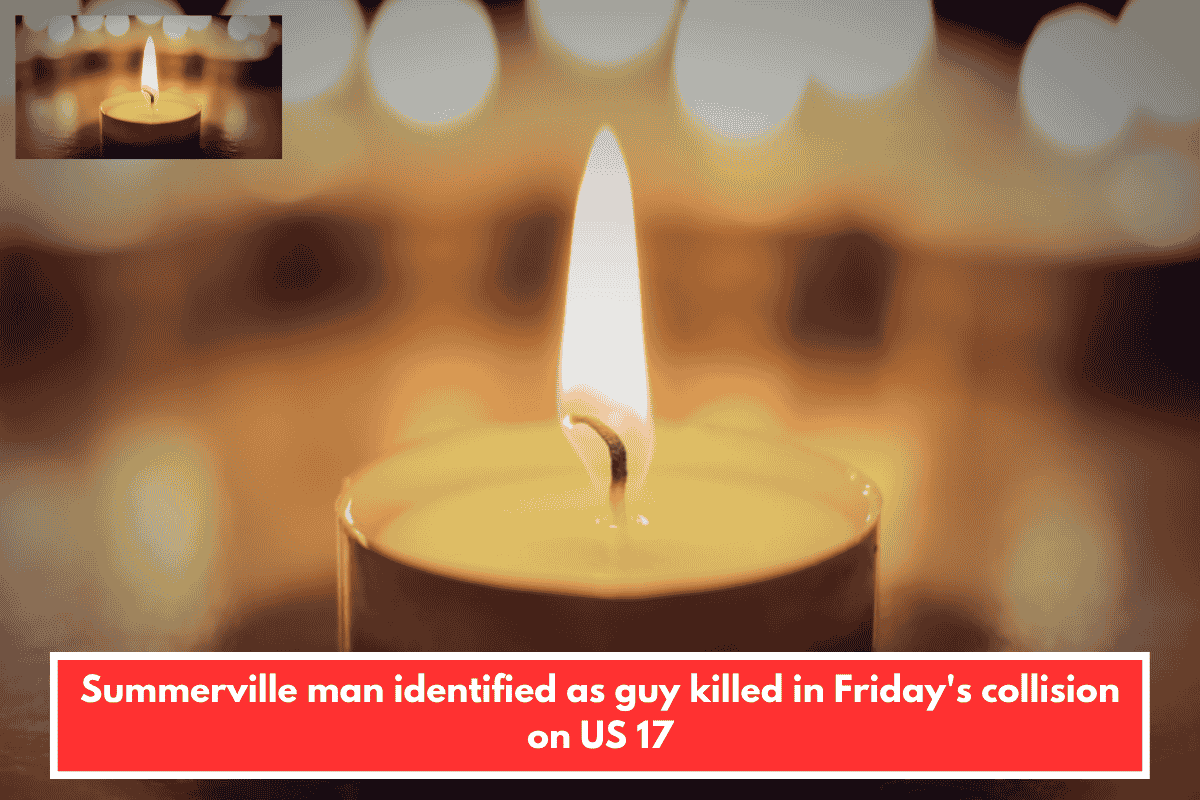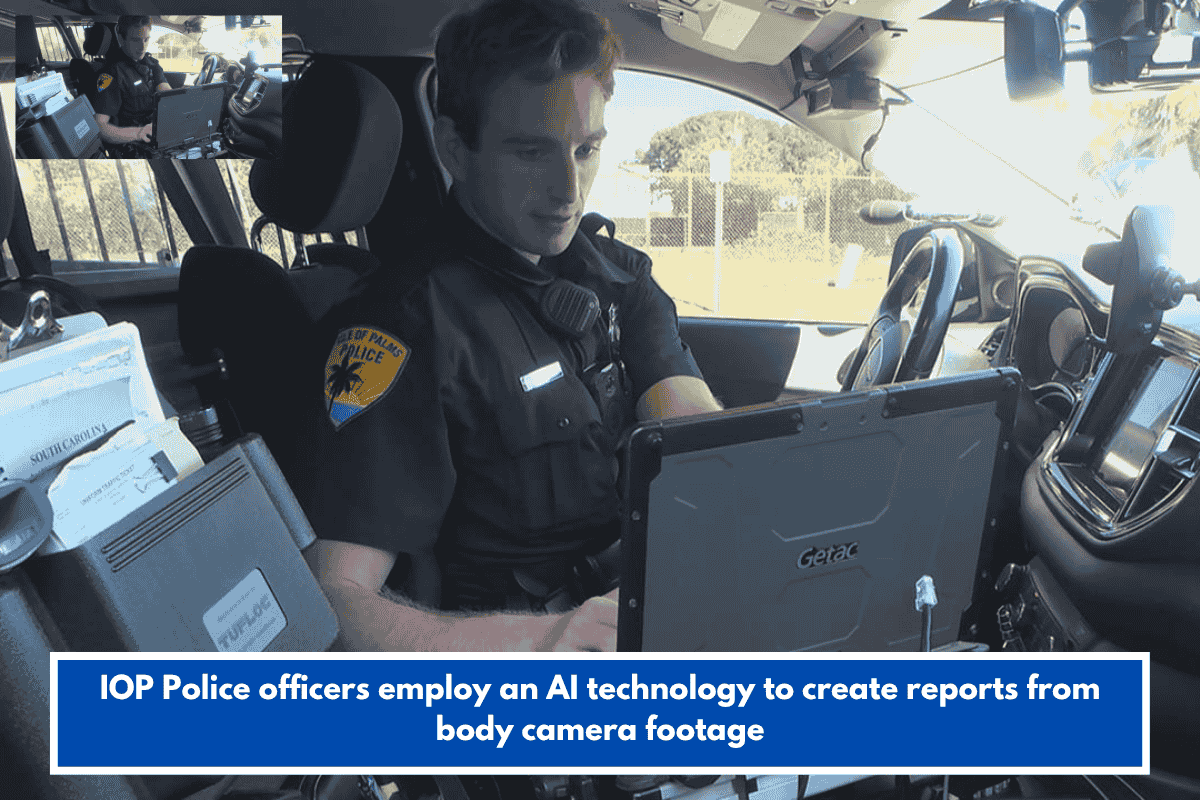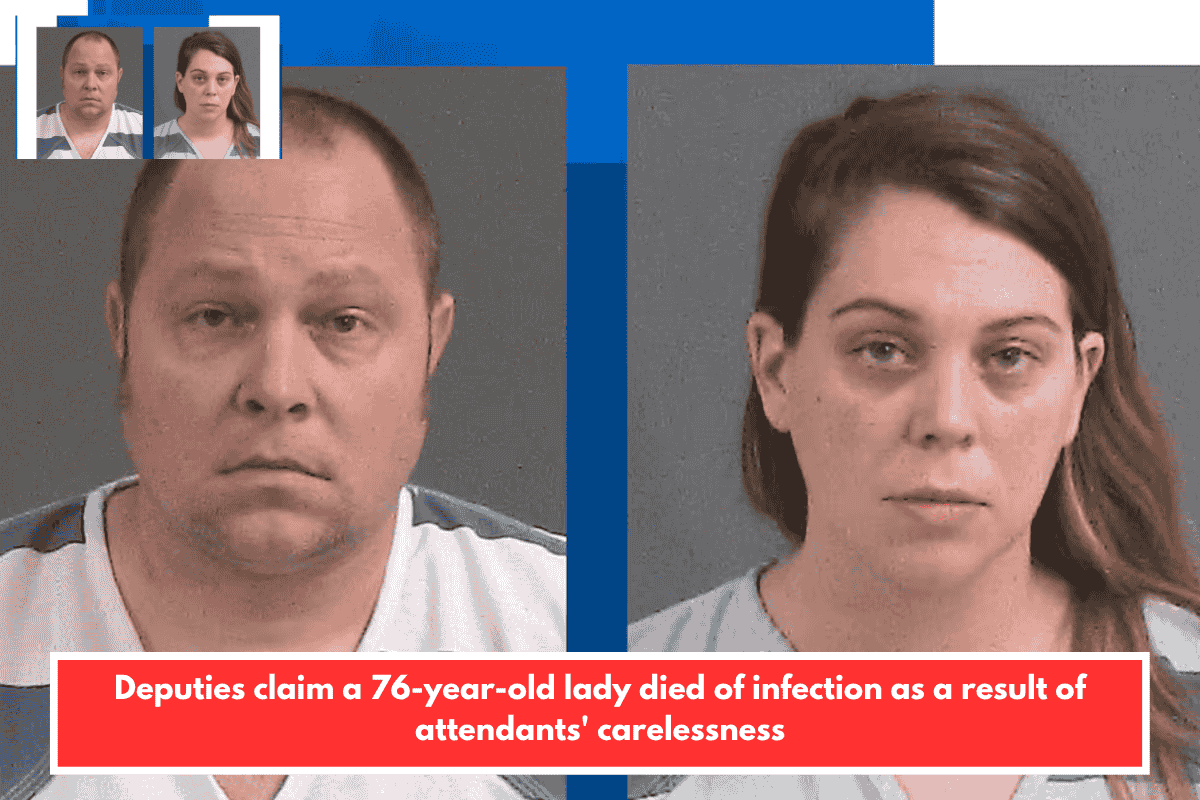Lamar Williams, a veteran officer with the College of Charleston Department of Public Safety, has faced a life-altering battle with kidney cancer and renal failure, yet remains remarkably optimistic. Despite losing both of his kidneys and undergoing two surgeries in a span of just two years, he sees himself as “blessed” and continues to work while waiting for an organ transplant. His story is not just one of resilience but also a call for people to consider becoming organ donors, as his journey highlights the importance of this life-saving act.
Williams’ Health Struggles
Williams, who has served with the College of Charleston for 14 years, began noticing mild symptoms like fatigue, headaches, and swelling in his legs. Initially, he didn’t think much of it, attributing the symptoms to the long hours officers often spend on their feet in the heat. However, in July 2022, routine blood work revealed kidney failure. Further tests showed that Williams also had kidney cancer.
By September 2022, Williams underwent surgery to remove one of his kidneys. Despite the surgery, his recovery was followed by another setback in 2024. A scan revealed that cancer cells had spread to his remaining kidney, and by November 15, 2024, Williams had to undergo surgery to have his second kidney removed.
Within just two years, Williams lost both kidneys. A man who had been an organ donor since he was a teenager, he now found himself in the position of needing a kidney transplant. He is currently on the transplant list at the Medical University of South Carolina and is optimistic about receiving a donor kidney.
Living with Dialysis
While waiting for a donor kidney, Williams relies on dialysis, a medical process that removes waste and excess fluid from the body, performing the function of his missing kidneys. Thanks to DaVita Dialysis, Williams learned how to perform home dialysis, a process that has allowed him to continue living his life.
Mary Legette, a Peritoneal Dialysis Nurse, trained Williams on how to use the home dialysis system. This method allows him to undergo dialysis while sleeping, leaving his days free to work and spend time with family. According to Legette, dialysis is critical: “If patients aren’t receiving dialysis, they could die.”
Continuing to Work
Despite his health challenges, Williams continues to go to work every day. His boss, Chief Chip Searson, is in awe of Williams’ determination. “I just, you almost get emotional when you talk about those sorts of things,” Searson said, emphasizing the value of health, faith, and family. Williams’ commitment to his job, even while managing his health, speaks volumes about his character.
The Support of Family
Williams draws strength not only from his own resilience but also from the support of his wife Moneke, a corporal who works as an assistant shift supervisor with him at the College of Charleston Department of Public Safety. The couple has been married for 11 years.
When Williams received his diagnosis, Moneke’s initial reaction was one of resolve: “We’re going to get through this, we’re going to fight.” However, behind closed doors, she admits to shedding tears and worrying about her husband’s health. The fact that they work together provides Moneke with peace of mind, as she is able to monitor his condition firsthand. For Williams, knowing his wife is by his side at work brings him comfort as he continues to navigate his health challenges.
A Message of Hope and Giving
Williams reflects on his life and health with gratitude despite the challenges. “If I can be a help to someone’s life, then that’s me living everlasting life,” he said. His experience has reinforced his belief in the power of organ donation. Williams has been an advocate for organ donation, encouraging others to sign up as donors. His story emphasizes the importance of giving life to those in need, like himself.
Williams also credits his early routine blood work for saving his life. “I found out my situation by the sheer chance of asking for a routine blood work. Without that, we may not be having this conversation,” he said. His story is a powerful testament to how simple actions—like a blood test—can save lives.
Lamar Williams’ journey through kidney cancer, kidney failure, and dialysis showcases not only the strength of the human spirit but also the importance of organ donation. While awaiting a transplant, Williams remains positive and continues to live life to the fullest, all while serving his community as a dedicated public safety officer. His story is a reminder that organ donation can provide life-saving opportunities for many individuals, and his message is clear: Donate life, and you could save someone like Lamar.












